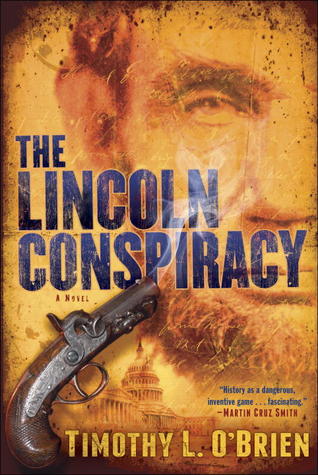Author: Loren DeShone
Series: Stand Alone
Pages: 390
Published: July 2012
by Loren DeShon
ISBN: 9780985925901
Source: Author sent for honest review
Description: Silas Jacobson pulled a
trigger, killed his father, and ended up months later face down in
Memphis mud, trying to forget the girl who betrayed him. Silas
buries his father on the farm, his guilt in himself and leaves home
seeking to forget past mistakes. He travels on Mississippi steamboats
and meets his best friend in a brawl, his worst enemy in a cathouse, and
a mentor and lover at a New Orleans faro table. Fighting, fornicating,
and cheating at cards are a grand time, but there's another woman, a
girl on a mission of her own, who saves his life and offers the
opportunity to redeem himself. Silas staggers out of the mud to
go to her, but he finds that she's deceived him from the start. He'll
risk his neck for her—he owes her that much—but love is no longer
possible. His shot at redemption comes down to his conscience, the two
women, a poker game, and the turn of a card.
I tend to gravitate to European historical fiction and can't say that I've read anything set on the Mississippi River. I was a little nervous about to be honest. And while I don't think it ranks into my top historical fiction reads, I still found it enjoyable.
Silas is actually quite selfish for a good portion of this book. He takes blame for his father's death and prior to that had felt trapped in his own life. When opportunity presents itself, he bails. I'm not sure what he thought he would find along the way, but it definitely taught him to grow up. It's a wonder really that he survives it all. He has a mouth that should get him into way more trouble than it does. He angers one of the richest southern men in the area. And he double crosses (basically anyway) one of the prolific dealers on the steamboats. He does make some friends in all the right places and has a small amount of whits that help keep him alive.
The slave trade discussed throughout this book didn't really surprise me. Offended...yes. It's absolutely deplorable that humans can treat another human that one. And this goes for today and much as then. I liked the little authors note on the story that inspired the character of Hannah. I had heard that it didn't matter how much "black" was in you. Once it was identified, you were slave material. The way it was presented didn't surprise me, but I was shocked at Silas' reaction. He kind of made me mad there. At that point, I had expected him to be a better person.
The funny thing is that I found that gambling in this book to be extremely intriguing. It never dawned on me that it was as crooked as it was. It makes me wonder how often dealers were actually caught doing this. When did it become legit? Or is there still some level of dishonesty in the game even in the best of places?
It took me awhile to get into the story and to read it. But, I'm glad I did. I learned a few things, and that's always something I like to take away from historical fiction.

Silas is actually quite selfish for a good portion of this book. He takes blame for his father's death and prior to that had felt trapped in his own life. When opportunity presents itself, he bails. I'm not sure what he thought he would find along the way, but it definitely taught him to grow up. It's a wonder really that he survives it all. He has a mouth that should get him into way more trouble than it does. He angers one of the richest southern men in the area. And he double crosses (basically anyway) one of the prolific dealers on the steamboats. He does make some friends in all the right places and has a small amount of whits that help keep him alive.
The slave trade discussed throughout this book didn't really surprise me. Offended...yes. It's absolutely deplorable that humans can treat another human that one. And this goes for today and much as then. I liked the little authors note on the story that inspired the character of Hannah. I had heard that it didn't matter how much "black" was in you. Once it was identified, you were slave material. The way it was presented didn't surprise me, but I was shocked at Silas' reaction. He kind of made me mad there. At that point, I had expected him to be a better person.
The funny thing is that I found that gambling in this book to be extremely intriguing. It never dawned on me that it was as crooked as it was. It makes me wonder how often dealers were actually caught doing this. When did it become legit? Or is there still some level of dishonesty in the game even in the best of places?
It took me awhile to get into the story and to read it. But, I'm glad I did. I learned a few things, and that's always something I like to take away from historical fiction.















![STSmall_thumb[2][2] STSmall_thumb[2][2]](https://blogger.googleusercontent.com/img/b/R29vZ2xl/AVvXsEgqh6yCJe9pbxXnyCm70_lVq9TevxysvRilZLy4QyvDDHwr0qywfoZtWrt2HKaCRbzVGPpGqgo4bNmdJqEl6SEjG03d2OPq11LJlw3wAMoHHPmLSaMVqPjvB-liLjbd_mo9asSaDDfHdfvP/?imgmax=800)




















